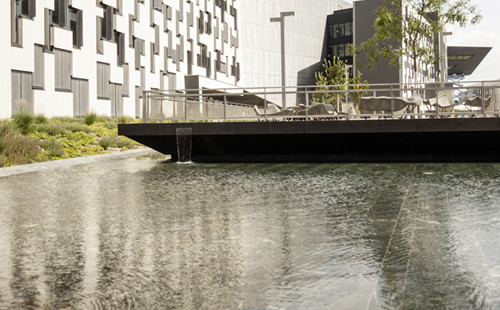IPE@WU Theses: Exploring Post-Soviet Economies with Artur Balakin
Guided by Ashley Simpson, his supervisor, Artur’s thesis combines deep geopolitical insight with rigorous data analysis.
Report by Ashley B. Simpson, MSc. Teaching and Research Associate
Ashley: One of the most rewarding parts of teaching is the individual relationships you get to build with students. When you have the opportunity to work with such a hardworking and intellectually curious student on a thesis, it doesn’t feel like work at all—it feels like a series of interesting and fun conversations. This is especially true when the student is deeply passionate about their chosen topic. In this piece, I’d like to highlight the work of one such student: Artur Balakin.
Artur: Following the collapse of the Soviet Union, both Poland and Ukraine faced major economic shocks, transitioning from centrally planned economies to market systems. Despite similar starting conditions, Poland succeeded in liberalizing its capital account and integrating into the global economy, while Ukraine struggled with inconsistent reforms and recurring financial instability. My thesis asked: Why did Poland achieve sustained capital account liberalization during the 1990s transition period, while Ukraine did not?
As a Ukrainian, I wanted to better understand my country’s post-independence path. Conversations with family sparked my curiosity, but I also wanted to investigate more deeply the political and economic dynamics of the 1990s. To approach this question, I developed three hypotheses: (1) countries with stronger domestic institutions would be more likely to achieve successful capital account liberalization, (2) countries aligned with Western organizations such as the EU, IMF, and NATO would experience deeper reforms than those oriented toward authoritarian regional powers like Russia, and (3) countries with reform-committed leaders would achieve more stable liberalization than those led by weaker or anti-reform figures.
Of these explanations, the geopolitical one proved most convincing. Poland’s Western integration created binding incentives and financial support for reform, while Ukraine’s reliance on Russia enabled rent-seeking without meaningful liberalization. Poland benefited from IMF and EU funding that was conditional on reforms, while Ukraine relied on Russian subsidies with no such conditions. The outcomes reflected this divide: Poland achieved stable liberalization, while Ukraine experienced capital flight and reform stagnation. In the end, external anchoring was decisive where domestic institutions alone could not explain the divergence.
The greatest challenge in my research was accessing reliable primary sources from the 1990s. Many records were not digitized, and data across countries were inconsistent. I addressed this by systematically cross-referencing national statistics with reports from international organizations like the IMF and World Bank, alongside academic studies and archival news coverage. This allowed me to verify information and fill critical gaps.
There were moments in the process when I felt stuck or overwhelmed, but reaching out to my supervisor always helped me move forward. My advice to future students is simple: don’t hesitate to ask for support. A quick conversation can provide new perspectives and practical solutions.
Beyond the case study itself, the project offered broader lessons. My thesis provides a framework for understanding why some post-Soviet transitions succeeded while others stalled, and it highlights the importance of institutional strength, geopolitical alignment, and leadership commitment. These insights could help policymakers design more effective economic reforms in other transitioning economies.
Writing the thesis was also personally rewarding. I was proud to finally answer my research question after months of investigation, and to prove to myself that I could master and organize a vast amount of complex information into a clear analytical framework. Even if my career path evolves, the analytical tools, critical thinking, and comparative skills I developed will be valuable across many fields.
Sign up for our mailing list for regular updates from the Institute. You can find the subscription form here: Subscribe to the newsletter.
![[Translate to English:] Artur Balakin Photo](/fileadmin/wu/_processed_/c/0/csm_Artur_eea90dc320.jpg)
Artur Balakin
